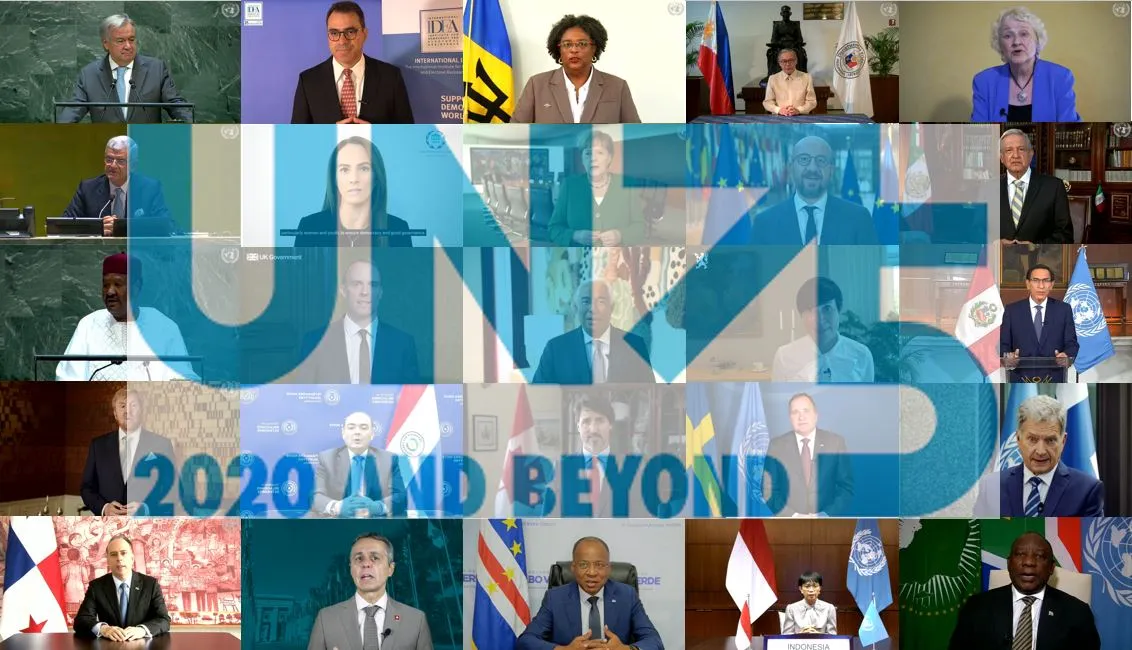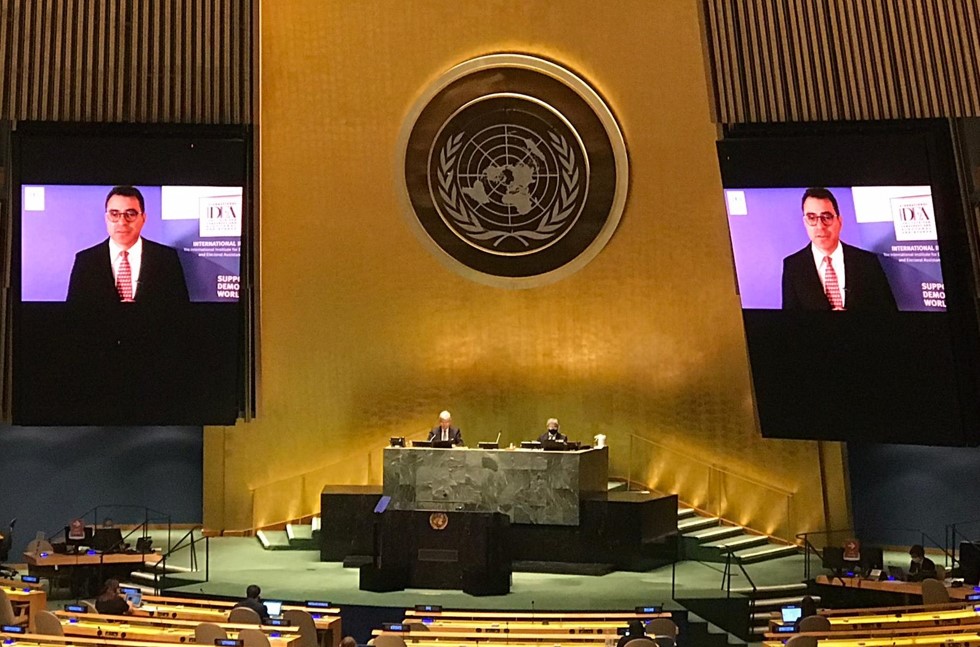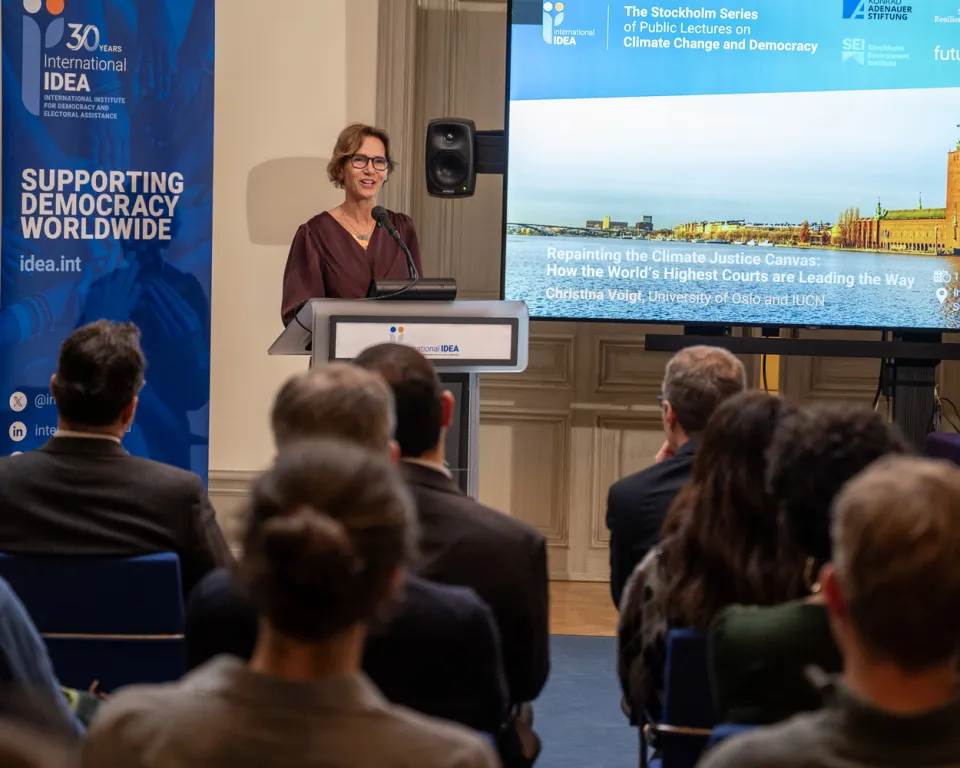
The establishment of the United Nations marked a turning point in a century shaken by two world wars. After 75 years, the relevance of the UN appears even greater in the face of one of the most devastating crises ever experienced: a global pandemic which impacted on every aspects of our lives, simultaneously threatening all the three pillars of UN work - sustainable development, human rights and peace and security.
This message emerged strong and loud in the statements of many Heads of State and Government at the commemoration of the adoption of the UN Charter at the high-level meeting held on October 26th on the theme “The future we want, the United Nations we need: reaffirming our collective commitment to multilateralism”. The anniversary was characterized by a call for action and collaboration to fight not only the pandemic, but also all the economic and social issues that have emerged with it, as stressed in a declaration adopted by the UN General Assembly whose negotiation was co-facilitated by Sweden and Qatar.
International IDEA Secretary-General Mr Kevin Casas-Zamora addressed the meeting (click here for full video statement) by calling for a renewed international commitment to multilateralism and by confirming the Institute’s partnership with the United Nations for the achievement of the ideals affirmed in the UN Charter, as demonstrated throughout International IDEA’s 25-year long history.
He noted that “the pandemic has brought to the surface the deeply rooted fragilities of the systems upon which our development is grounded... (and) it has affected trust in public institutions and their effectiveness in responding to unprecedented global challenges”. Political systems are under stress too. The pandemic has exacerbated processes and conditions that already affected peace and conflict dynamics in the world. The fragility of institutional responses in many countries has increased vulnerability to the pandemic and its consequences. While the COVID-19 emergency is unfolding, the erosion of multilateralism is impacting on the implementation of global agendas that were adopted through consensus before the crisis. Mr Casas-Zamora underscored that “the international system of norms and institutions created over the past decades is under tremendous stress”, and concluded that “the way out of the crisis is not bouncing back to the pre-COVID-19 status quo... (but) bouncing forward, by strengthening a more effective and more democratic multilateral space.” (click here for the full written statement)

Secretary-General of International IDEA
UN Secretary-General, H.E. Mr Antonio Guterres, particularly highlighted the importance of democracy during the commemoration, and he focused his attention on the issue of gender inequality, which he defined as “the greatest single challenge to human rights around the world”. A challenge we can only fight with multilateralism and collaboration.
Secretary-General of the United Nations
The COVID-19 pandemic and economic crisis has clearly also endangered democracies around the world and weakened public institutions. The health crisis has exacerbated the temptations of reducing political freedom, and civil society actors are being repressed or ignored even more around the world. It is now time to build trust in public institutions, fight corruption and systemic inequalities, and think about the type of recovery to achieve in our common future, once the pandemic is over.
H.E. Mr Volkan Bozkir, President of the UN General Assembly, thanked all the individuals and organizations that have supported the United Nations over the past 75 years, particularly the Member States. President Bozkir praised the United Nations founders, who established the UN in order to create unity and harmony among nations after the atrocities of World War II. They recognized the pillars of the United Nations, the President continued, “peace and security, development, and human rights - are equally important, interrelated, and interdependent. One cannot advance without the other”. President Bozkir echoed UN S-G Guterres when he reaffirmed the need for multilateralism in the fight to address global challenges, like climate change, poverty and now the pandemic that has afflicted the entire world. He called on Member States for placing the UN at the centre of their collaboration, for strengthening and improving the multilateral system, and for joining forces to ensure a better future for the world.
President of the 75th General Assembly
H.E. Mr Abdou Abarry, Permanent Representative of Niger to the United Nations, also spoke during the commemoration, in his capacity as President of the Security Council for the month of September. He joined the President and the SG by reaffirming multilateralism and the importance of global governance, stressing that “there is no other global organization that has the legitimacy, convening power and normative impact as the UN”.
President of the Security Council (September)
A key message from the commemoration of the 75th anniversary of the UN is that the protection and strengthening of democratic institutions and processes is critically important in the context of the United Nations and cannot be undermined or taken for granted. The UN pillars can only be reinforced by building democracy through civil society engagement, protecting civic space, promoting gender equality and the empowerment of women and girls, safeguarding the integrity of electoral processes, affirming and protecting fundamental freedoms and human rights and deepening political participation.



